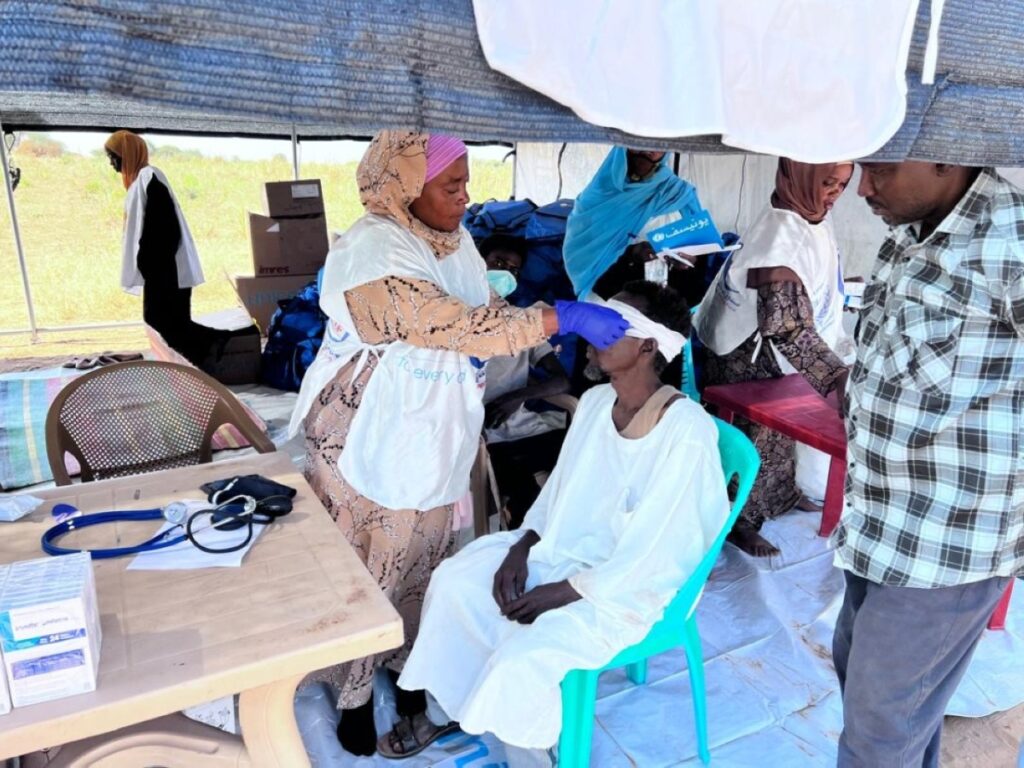KHARTOUM: The Kuwait Patient Helping Fund Society (North Darfur Office) has provided urgent medical and humanitarian assistance to civilians displaced from El-Fasher to Tawila locality in western Sudan, the organization said Wednesday. “The assistance included setting up a field medical clinic to provide health, nutrition and protection services against gender-based violence,” said Dafallah Al-Fateh, director of the fund’s North Darfur office.
The aid comes amid a surge of displacement after the Rapid Support Forces (RSF) captured El-Fasher, the Sudanese army’s last stronghold in Darfur, on Sunday. More than 36,000 civilians have fled the city, with many seeking refuge in Tawila, a town already sheltering around 650,000 displaced people.
Al-Fateh said support also included “offering consultations, treatment, and primary healthcare, in addition to distributing RUTF (Ready-to-Use Therapeutic Food used to treat severe acute malnutrition) and LNS (Lipid-Based Nutrient Supplements), as well as high-energy biscuits.” The clinic operates 24 hours a day.

As part of its protection against gender-based violence efforts, the office also distributed dignity kits to women and girls and organized awareness and psychosocial support sessions. Critical cases referred to Tawila Hospital for clinical care. A dignity kit comprises basic items that women and girls need to protect themselves and maintain hygiene, respect and dignity in the face of disasters, war and other crises. Generally, they contain menstrual pads, bath soap, multiple pairs of underwear, detergent powder, sanitary napkins, a flashlight, toothpaste, a toothbrush, a comb, and in some cases a headscarf.
Dr Kamal Al-Din Yaqoub, the fund’s Director General, praised the field team’s efforts and urged partners and donors “to continue providing support to alleviate the suffering” of displaced families. He emphasized that the fund has continued providing services in Al-Fasher and Tawila since the outbreak of war in April 2023.
Field office coordinator Mohammed Ahmed said the number of newly displaced people has surpassed 3,000, mostly women, children and the elderly, many of whom suffer from malnutrition and injuries. He stressed that “humanitarian needs are vast and require expanding the response and enhancing coordination among organizations working in the area.” — Agencies

